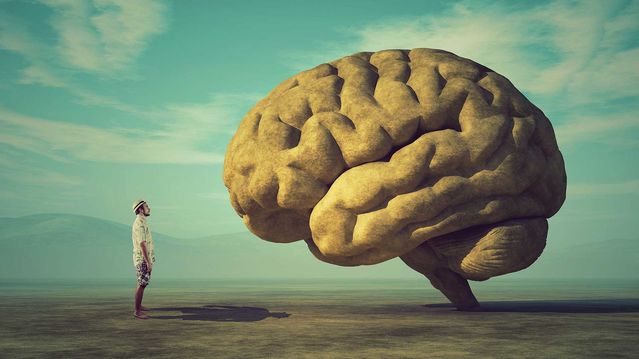What would you be without your memories? How important is your ability to remember the past and draw on it to inform your next move? I’ll answer for you: It’s right up there with breathing and eating. One would think that understanding how memory works would be among high priority for all people in all societies. After all, memories form the foundation of our personalities and give meaning to our lives.
The reality, however, is that most people, regardless of intelligence or education, know little about memory. This is because it is not taught as a matter of routine in high schools. Even most university students graduate without the benefit of learning how their own brains turn experiences into memories. This is significant because memory, for all its greatness, causes us serious problems when we don’t respect its purpose and limitations. Every moment, countless people make critical errors in their personal and professional lives simply because they have not learned how their brain recalls the past.
The human brain is still a mysterious universe in many ways, of course. Scientists are still working to unlock the secrets of memory. Fortunately, enough has been revealed to offer us some guidance toward wiser and safer navigations through daily life.
“Our memory processes did not evolve to keep accurate and detailed accounts of the events in our lives. The brain is not your personal stenographer or recordkeeper.”
The first and most important lesson is that human memory is not reliable. Not even close. Do not forget this. Our memory processes did not evolve to keep accurate and detailed accounts of the events in our lives. The brain is not your personal stenographer or recordkeeper.
Your memory is better thought of as something like helpful input. It’s packaged information sent up to help us cope in the present and plan for the future. It is not meant to provide foolproof transcripts or recordings of what really happened. And while this can complicate our lives, it works just fine most of the time. We don’t need to remember every detail about everything. So attempting to would be grossly inefficient.
For more than two million years of human existence, we have survived and thrived in large part because our memory worked well enough. But many problems arise today in our modern information-soaked, hyper-connected, and fast-changing world when people don’t understand memory and therefore place too much trust in it.
Our memory is constructive because the recollections of our past experiences are cobbled together from many bits of information. Think of it as though the brain tells you a story about a past event in your life. This story is based on observations, feelings, smells, things heard, etc. Human memories about past experiences come to us in a way that is similar to how archaeologists and police detectives use bits of information—artifacts and clues—to construct stories about past people and events.
“Anyone can misremember anything.”
A revealing study by research psychologists Daniel Simons and Christopher Chabris showed how far removed the public’s beliefs about memory are from reality. Researchers asked people simple questions about memory and then compared their answers with those of experts in memory research. Here are some key findings from their study:
There is not a video camera in your head… and yet 63 percent of laypersons surveyed either strongly agreed or mostly agreed that human memory “works like a video camera, accurately recording the events we see and hear so that we can review and inspect them later.” None of the experts—zero percent—strongly agreed or mostly agreed that memory is like a video camera. An overwhelming majority of the experts, 93.8 percent, strongly disagreed.
Misconceptions about confidence and trustworthiness come up a lot when dealing with extraordinary claims. For example, when someone claims to have seen an alien spacecraft, Bigfoot, ghost, angel, or otherwise, I care little about their confidence or honesty because I know those do not rise above our inconsistency at accurately recalling past events. Anyone can misremember anything.
I like to describe our memory system as something like an old man sitting by a campfire somewhere deep in your brain. He means well and wants to help. But he doesn’t show you your past like some wizard with a time portal. The best he can do is tell you stories about your past. And, like all good storytellers, he edits for impact, efficiency, functionality, and clarity. He tells you what he assumes you probably need to know.
Sometimes he may even embellish the tale by adding a bit of flavor, accuracy be damned. Or, the old man might decide to leave a few things out in order to spare you pain or shame. He also makes honest mistakes, lots and lots of them. Sometimes he just gets confused or sloppy and leaves out something important. He could even include inaccurate information by accident. Maybe that special memory of your first kiss in middle school has been infiltrated with portions of a college experience or a scene from a movie you saw many years ago.
The human brain’s ability to store and recall massive amounts of information has been a key to our success and survival. But it comes with many surprising peculiarities and limitations. We cannot rely on our memories one hundred percent, regardless of how certain we may feel about them. You may believe that you can replay something from the past. But you can’t. You may see the past crystal clear in your mind. But that’s not personal history you are watching. It’s a docudrama at best. When you remember, your brain tells your brain a story—and much may be lost in transit.
References
D. J. Simons, C. F. Chabris, “What People Believe about How Memory Works: A Representative Survey of the U.S. Population,” PLoS ONE 6, no. 8 (August 3, 2011): e22757, doi:10.1371/journal.pone.0022757.
Guy P. Harrison, Good Thinking: What You Need to Know to Be Smarter, Safer, Wealthier, and Wiser. Amherst, NY: Prometheus Books, 2015.
Source: What You Need to Remember About Your Memory | Psychology Today













